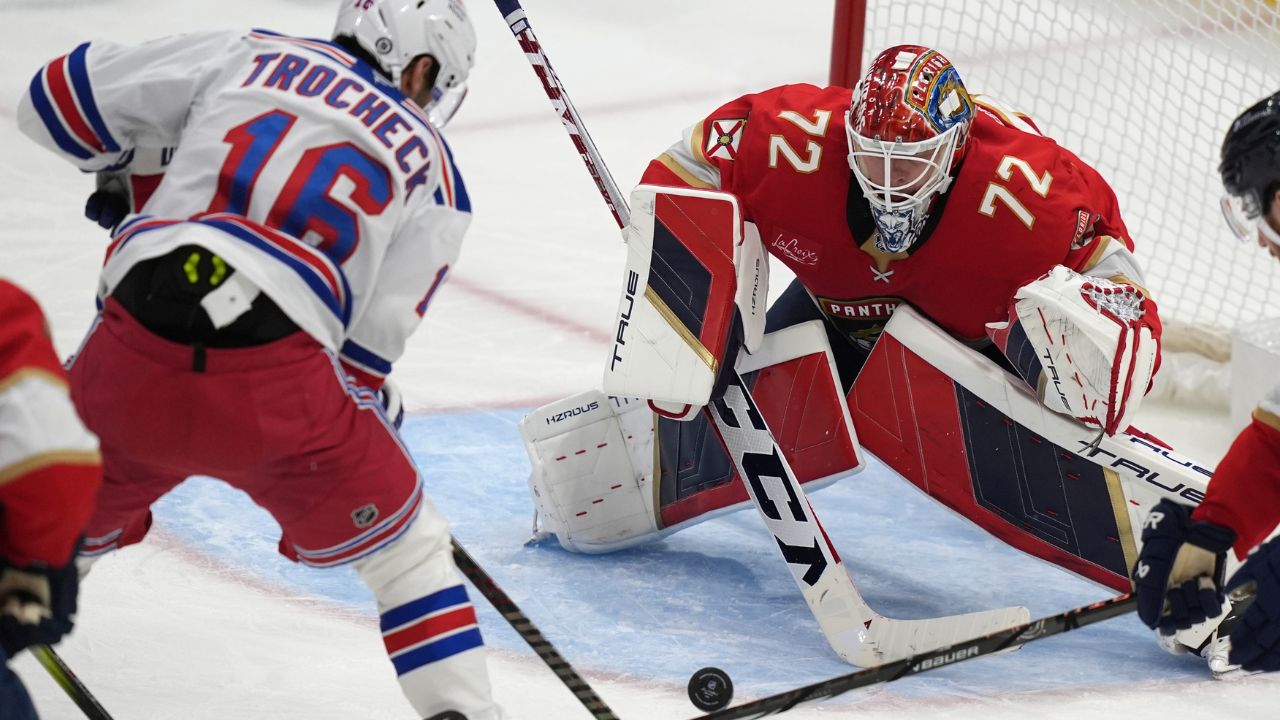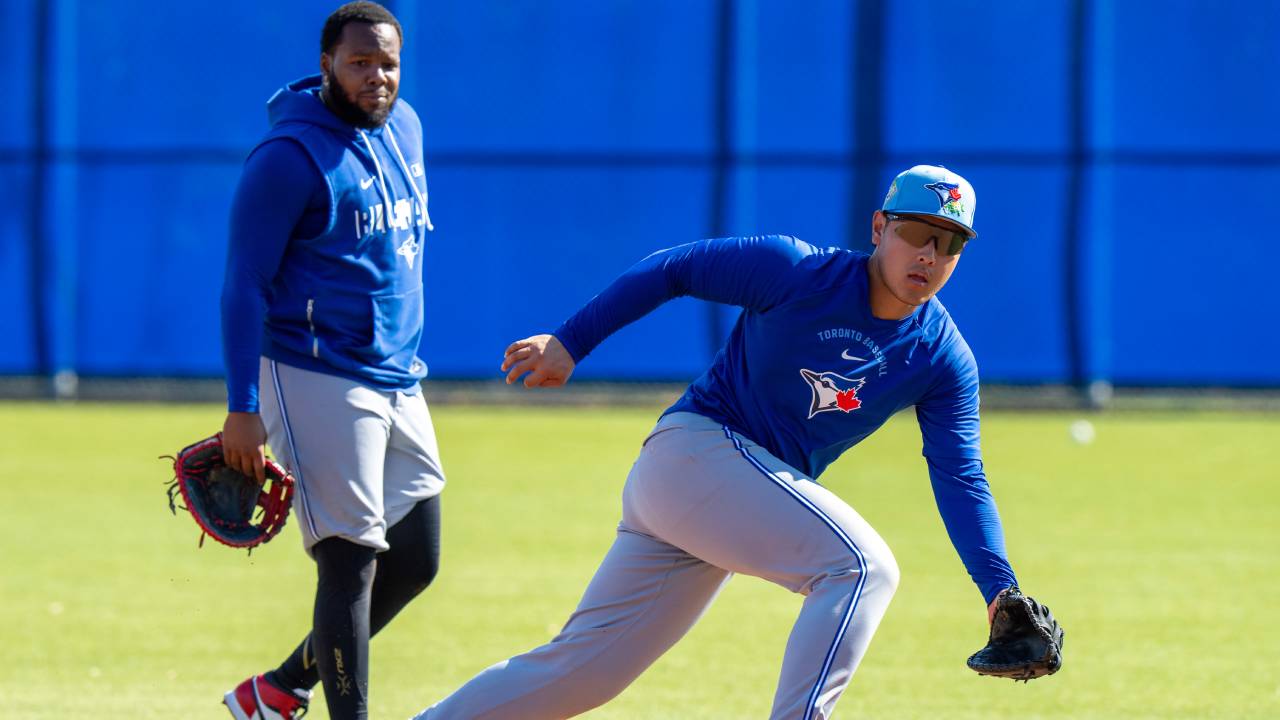
This shouldn’t come as a surprise, especially not from a team that hired a former general manager to serve as a first-time executive vice-president of hockey operations, a former player agent to be a first-time general manager and a bantam coach to graduate to the NHL’s biggest pulpit.
The Montreal Canadiens have a new way of doing things, and making Nick Suzuki the youngest captain in team history is perfectly in line with that.
He’s 23 years old, just a couple hundred games into a promising NHL career and entering Year 1 of an eight-year, $63-million contract, and neither Jeff Gorton nor Kent Hughes nor Martin St. Louis felt this extra weight would be too much for him to bear.
Consider this a massive departure from the old way of doing things.
“It’s certain their management style is completely different,” Canadiens owner Geoff Molson said to reporters at the team’s annual golf tournament just moments after St. Louis announced Suzuki would be flanked by Joel Edmundson and Brendan Gallagher in his new role.
The statement rings true.
Gorton, upon being hired to head up operations in November, said the Canadiens would operate outside the box. Hughes has embraced the unconventional since taking over as general manager in January. And St. Louis, in a very short period as head coach of the Canadiens, has taken an extremely modern approach to running the bench.
Together, they made this all-important decision, approaching Suzuki at the NHL Draft in July and letting him take the time to contemplate all the ramifications before ultimately accepting prior to Monday’s golf tournament. They have no reservations about it.
Neither does Molson.

“For me, I’ve known him for a few years now, and he’s poised, he’s a gentleman, he’s loved by his teammates, he’s loved by his coaches, and just that is a statement in itself,” he said. “He’s young, but I think he’s very mature for his young age, and I have no doubt that he’s ready to be captain of the Montreal Canadiens.”
Suzuki’s teammates believe in him, too.
“Obviously, it’s a great honour for Nick,” said goaltender Jake Allen. “I’m very, very happy for him. He’s very deserving. I think, probably, if you would’ve polled most guys in the locker room, we probably would’ve imagined that he would’ve been the captain of this team, so I don’t think it’s a huge surprise to a lot of us. He’s very well respected in the locker room. He has a great demeanor to be captain, especially in an organization of this ilk, so really happy for him. He’s got such a bright future, and he’s going to lead this team to a good place.”
It’s hard to imagine the previous administration would’ve appointed Suzuki at this stage of his career.
We can’t say for sure, but given that they didn’t even want to name a captain a year ago—when Shea Weber could no longer serve in the role and they had a number of experienced leaders to chose from (including Edmundson and Gallagher)—it’s a stretch to think they’d entrust such a young player to carry such heavy responsibilities.
This was Maurice Richard’s role, Jean Beliveau’s role, Henri Richard’s role, Yvan Cournoyer’s role, Serge Savard’s role, and Bob Gainey’s role. All of them were deep into Hall-of-Fame careers and totally versed in the rich history and time-honoured traditions of the Canadiens before assuming it. They were nominated by their teammates—most of them unanimously because their experience and character made them the most obvious choices.
It was imaginable Suzuki would eventually follow in their footsteps, but not a given it would happen so soon.
It’s a bold decision. One of many the owner and his new management group have made over the past several months.
“We’ve brought in a lot of new people, we’ve built our departments—analytics, scouting, player development and much more,” said Molson, outlining the depths of the rebuild the Canadiens have embarked on as an organization.
Making Suzuki captain is an extension of this changing of the guard.
“It’s an honour for me to become captain of the Montreal Canadiens,” the London, Ont., native said in French. “It’s a true honour for me, and a privilege. This team is headed in a great direction, and I couldn’t be more excited to be the captain and represent the team.
“It means a lot. Just to see the respect that the management, teammates, coaches have for me—I know it’s a big role, but I think I’m ready for it, and there’s a bright future here and I’m excited to be a part of it.”

If Molson, Gorton, Hughes and St. Louis felt confident Suzuki could handle it, it had much to do with his composure, his maturity, his intensity, his competitiveness and, yes, that respect that he has garnered since arriving with the Canadiens via trade with the Vegas Golden Knights in 2018.
The kid has accumulated 49 goals and 143 points in 209 regular season games and been even more productive in the Stanley Cup Playoffs.
He’s done it all at even keel, always rising to the occasion when the occasion calls for it, and Hughes said it became evident, in speaking to Suzuki’s teammates throughout last season, that he was the man for this job.
“He’s very mature,” affirmed Gallagher. “He’s a young player, but he’s very mature. And I think the most important thing is he has the respect of every single guy in that locker room and he’s the heartbeat of our team.”
That Suzuki has already experienced so much—such dramatic twists and turns in such a short period of time in Montreal—and that he’s had such exemplary leaders (like Weber) to learn from will only help him.
“I think we’ve been through a lot my first three years—going to the Stanley Cup Final and finishing in last place,” he said. “There’s been a lot of highs and lows and a lot of learning experiences, and I think I’ve gotten to handle each situation really well and just lead by example. I think this is a privilege to have that pressure on you, and we want to win hockey games, and that’s the biggest reason that we’re here.”
It will take time for this group, which is young and probably two years away from entering its competitive window. There will be hard knocks, tough losses and suffocating pressure to deal with along the way.
But the Canadiens are betting Suzuki can handle all of that and thrive—even at this early stage of his development—and that’s perfectly emblematic of how they think and operate.
It’s different. Refreshingly so.






